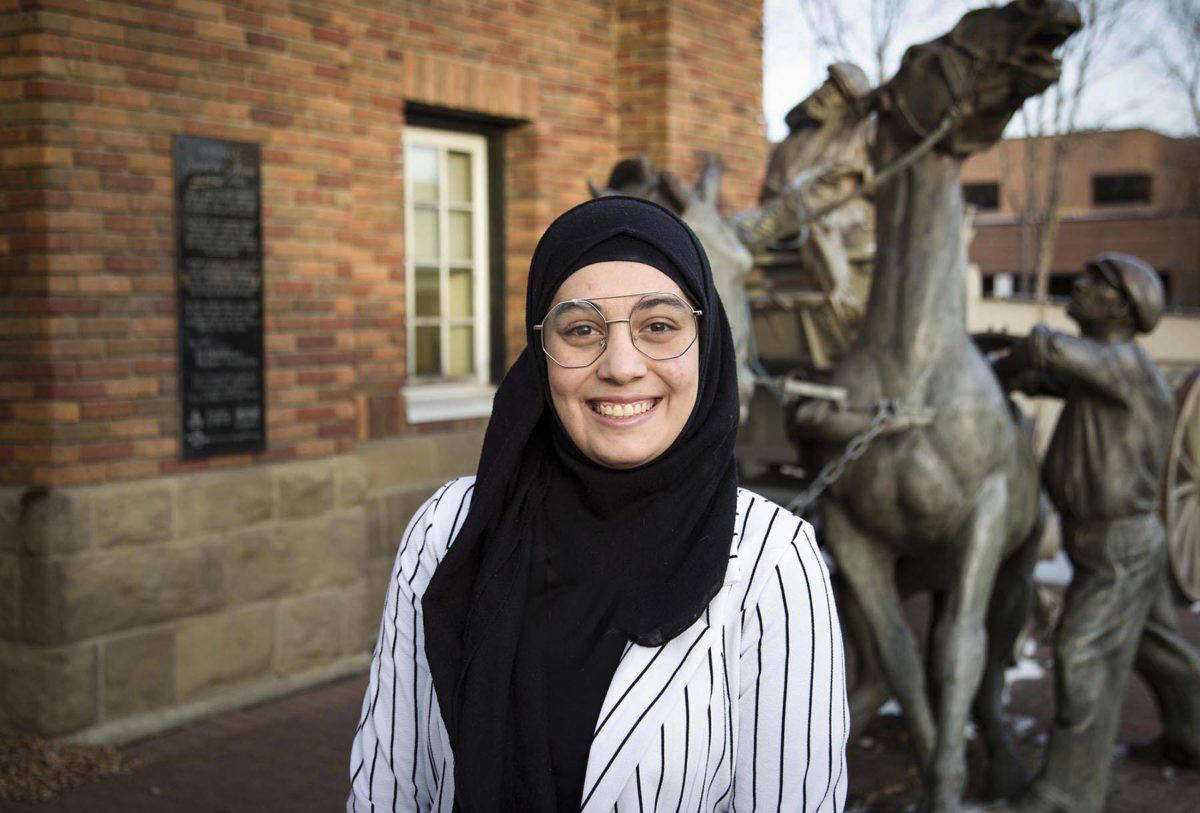Red Deer resident Ola Zeinalabdin and her family were among the more than 25,000 Syrian refugees resettled in Canada between Nov. 2015 and Feb. 2016
Since moving to Red Deer, Zeinalabdin said she has faced challenges, such as learning English, but said she is grateful for the welcoming community.
“I love this city!” she said. “I like how the community is all together. The community is very welcoming, friendly and always helpful.”
After six months focused on learning English, she said she wanted to give back to her new home. So, Zeinalabdin started volunteering at the Central Alberta Refugee Centre (C.A.R.E.).
“It’s actually like you are helping the community and you speak and have a voice,” she said. “I’m telling people about me and my culture and where I come from.”
Zeinalabdin, 21, fled Syria with her family after her uncle and father were arrested by government forces in 2013. They lived in neighbouring Jordan before moving to Red Deer as federal government and community-group sponsored refugees. C.A.R.E. and Catholic Social Services helped them settle when they arrived.
“I was in Grade 9 when the war started,” she said. “We were in exams when the Syrian forces bombed the school. That was horrible and very dangerous. My first day at school in Grade 10, they came to the school. They were around the school and the rest of the city. We could not stay because it was dangerous.”
After graduating from Lindsay Thurber High School, she is hoping to attend Red Deer College as a nursing student.
Zeinalabdin said volunteering with the refugee centre’s Public Awareness program involves talking in schools and at workshops across Central Alberta about her experience.
“Every time I go and share my experience, I see my future in the eyes of the student and the eyes of the people who are listening,” she said. “They are very respectful. They respect my religion and my story. I love the hugs after I share my story. All of them come and give me a hug. It makes me feel at home and with family.
“It’s important to give back to the community that has helped me first. To give back to this amazing country and then to educate people and tell them why we are here. We are here not for a job opportunity. We are not here to study. We are here to have a safe life with our family, away from danger.
“When people listen to someone who had an experience with war, they really understand it more. They start to realize that they should be thankful for what they have here because a lot of children don’t have what they have.”
Executive Director at C.A.R.E. Frank Bauer said a majority of refugees in Central Alberta come from Syria because of the civil war that broke out in 2011.
Refugees from East Africa, such as Eriteria, make up a large number of refugees arriving in the region right now.
Picking up better English-language skills, in general, is a major issue refugees face, he said.
“If you don’t speak the language, then there is no way you can make friends, get a job, or whatever,” he said. “Especially government-sponsored refugees.”
Another critical need is mental health support, Bauer explained.
“If you come as a refugee from a war-torn country, then there is a lot of trauma and things you have to process and they will need help in that field. It is a very complicated field. Post-traumatic stress disorder treatment is a big challenge for refugees in general. You need someone who is specialized in the field but also speaks the language and understands the culture. That’s a big thing that has an impact on their learning capabilities.”
Canada has welcomed approximately 60,000 Syrian refugees as a response to the humanitarian crisis in the country.
It is estimated that up to 250,000 Syrian refugees currently living in neighbouring countries of Turkey, Lebanon, Jordan, Iraq and Egypt could return home in 2019 as the war has largely ended, according to a United Nations refugee agency UNHCR announcement on Dec. 11th. The agency said 37,000 refugees who lived in those countries have returned to Syria this year.



